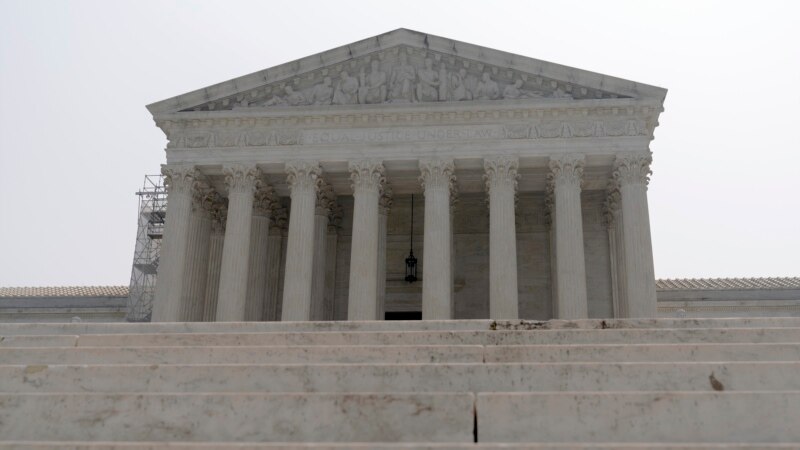
In a blow to LGBT rights, the US Supreme Court ruled Friday that the constitutional right to free speech allows certain companies to refuse to provide same-sex wedding services, ruling in favor of a web designer. who cited his Christian beliefs in challenging a Colorado Anti-Discrimination Law.
The justices in a 6-3 decision written by Conservative Justice Neil Gorsuch vacated the ruling of a lower court that had rejected Denver-area business owner Lorie Smith’s offer of a waiver to a Colorado law that prohibits discrimination based on sexual orientation and other factors.
Smith’s business, called 303 Creative, sells custom web designs. The dispute centered on the protection of free speech under the First Amendment to the United States Constitution.
“The First Amendment views America as a rich and complex place where all people are free to think and speak as they wish, not as the government requires,” Gorsuch wrote.
The three liberal judges on the court dissented from the decision. In dissent, liberal Justice Sonia Sotomayor wrote: “Today, the Court, for the first time in its history, grants a business open to the public the constitutional right to refuse to serve members of a protected class.”
The court acted on its last day of rulings in its term that began in October.
The case pitted the right of LGBT people to seek goods and services from companies without discrimination against the free speech rights, as Smith asserted, of artists, as she calls herself, whose companies provide services to the public.
Smith, who lives in Littleton, a Denver suburb, is an evangelical Christian who has said she believes marriage is only between a man and a woman. She preemptively sued the Colorado civil rights commission and other state officials in 2016 because she said she feared punishment for refusing to perform gay weddings under Colorado’s public accommodations law.
The court has a 6-3 conservative majority. Liberal justices during oral arguments in the case in December said a decision in favor of Smith could empower certain companies to discriminate.
Smith and his lawyers have said he does not discriminate against anyone, but he opposes messages that contradict his Christian beliefs.
Colorado civil rights groups and numerous legal scholars warned of a ripple effect if Smith won, allowing discrimination based not only on business owners’ religious beliefs, but also on potentially racist, sexist and anti-religious views.
There are public accommodation laws in many states that prohibit discrimination in areas such as housing, hotels, retail businesses, restaurants, and educational institutions. Colorado first enacted one in 1885. Its current Anti-Discrimination Law prohibits businesses open to the public from denying goods or services to people based on race, gender, sexual orientation, religion, and other characteristics.
Connect with the Voice of America! Subscribe to our channel Youtube and activate notifications, or follow us on social networks: Facebook, Twitter and instagram.






![[Img #74676]](https://thelatestnews.world/wp-content/uploads/2024/12/Laser-artificial-neuron-150x150.jpg)







